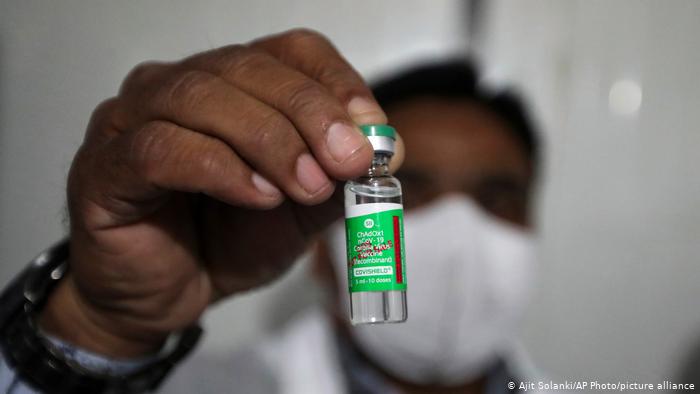COVID-19 vaccine has been touted by government and health agencies to be the panacea to the pandemic that has brought the world to a standstill at the height of its reign.
The jab has a side effect of fever, headache, sore arm and other minor illnesses that affect those who take the vaccine for a few days, which is often relayed after being inoculated.
- Oba of Benin, Obaseki differ on repatriation of looted artifacts
Nigeria makes history, shock US in pre-Olympic basketball friendly
But some women who took the vaccine have complained of changes in their menstrual cycle. The change was reported to be heavy blood flow, early or delayed period and more painful periods.
The BBC reported that after Dr Kate Clancy, a medical anthropologist, shared on Twitter, her experience of an unusually heavy period, which was not documented during clinical trials of all the vaccines approved by US Centre for Disease Control (CDC) for protection against COVID-19, it gained traction following the Moderna vaccine.
Thereafter, Clancy received dozens of similar accounts in response, together with a former colleague, Dr Katharine Lee, and they launched a survey documenting people’s experiences.
However, the symptoms are not rare to menstruating women as a report by New York Times noted that menstrual cycle changes were normal throughout the course of the year and could be caused by stress, fatigue or other lifestyle changes.
Researchers are yet to come up with a scientific evidence that approves or disproves the claims as dozens of women have suggested that receiving vaccine jabs had interfered with menstruation.
Muinat Ibrahim, a teacher, told our correspondent that her period came a few days before she anticipated it after taking the jab, and that some of her colleagues also made similar observations on the disruption of their periods.
“A friend told me that her period came a week earlier than she expected it after taking the first dose, which she attributed to the vaccine.
“Though it is not unusual to experience this phenomenon during our periods, a lot of us experience some changes in our bodies, apart from the official side effects we were informed about,” she said.
She added that the response was not all negative as there were those who reported that their bodies felt good after taking the vaccine.
What vaccines do to the body
According to Healthline, “Vaccines train a person’s immune system to recognise and clear out germs (bacteria and viruses) that can cause serious illness. They strengthen the immune system by training it to recognise and fight against specific germs.”
It added that vaccines aid the body in producing an immune response to a threat without causing illness, thus, they contain “either killed or weakened versions of the virus that cause the disease or a small part of it, such as a protein or nucleic acid.
“When you get a vaccine, your immune system recognises these as foreign. It responds by creating memory cells and antibodies that protect you against future infection.”
How COVID-19 vaccines protect the body
Medical News Today states that the coronavirus that causes COVID-19 contains spikes of protein on each viral particle. These spike proteins allow the virus to attach to cells and cause diseases.
It explained that the vaccines help the body to recognise the proteins as alien and in turn fight the coronavirus that has them. It categorised the major vaccine recommended by health agencies into two – The RNA or messenger RNA (mRNA) and the viral vector Vaccine.
The mRNA delivers a message to the immune system, which informs the cells to create a harmless piece of a specific spike protein that is found on the surface of COVID-19 vaccines like Moderna and Pfizer/BioNTech are made through the mRNA.
“Your body recognises that the spike protein doesn’t belong and starts creating antibodies to remove it. In doing so, your body’s immune system becomes prepared to fight the virus if you encounter it,” it stated.
The viral vector vaccine replicates a harmless virus, which is delivered into the gene, giving cells the ability to make spike protein.
The Oxford-AstraZeneca, Sputnik V and Johnson & Johnson COVID-19 vaccines are all viral vector vaccines that use different adenoviruses as the delivery system or vector.
Adenoviruses can cause common cold, and there are different types of adenoviruses that can infect different species.
Nevertheless, the mRNA and viral vector vaccines do not carry the information necessary for cells to recreate COVID-19 virus; as such, they cannot cause COVID-19.
With research seeking to understand the connection between the vaccines and menstrual change yet to come to conclusion, the CDC and the Nigeria Centre for Disease Control (NCDC) are yet to make any official statement on the effect of the vaccines on menstruation as checks on their website does not contain any topic to either debunk the claim or prove it.

 Join Daily Trust WhatsApp Community For Quick Access To News and Happenings Around You.
Join Daily Trust WhatsApp Community For Quick Access To News and Happenings Around You.


